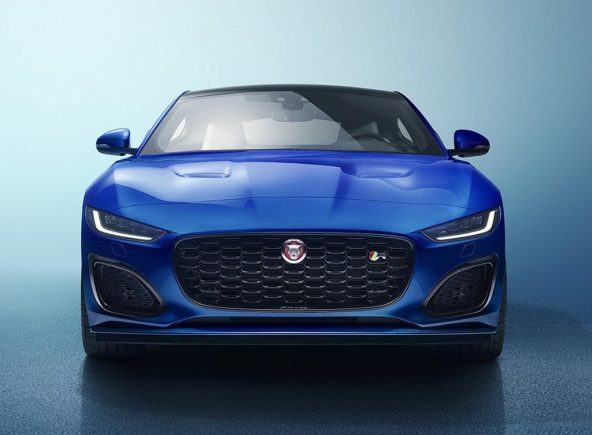The story behind the change of ownership of many British brands.
British Vehicle Brands’ Ownership
When MotorBeam covered the takeover of Norton by TVS, there were some sweet conversations that were going on down in the comment section. One user pointed out how many of the British automotive brands are not owned by British backers anymore. In fact, many British marques have became a good investment opportunity for companies looking to improve their international presence. Take Tata with JLR, SAIC with MG, and even Reliance with Hamleys. All of these companies have a rich heritage, but they are not rich.
The list goes on, BMW – Mini, Geely – London Taxi, you get the point. Now, upon first glance, even for me, this seemed like bad management by each of these companies before they went bankrupt. But in reality, many of the takeovers have resulted from 1 major failure of a merger – The Rover Group.
A Game Of Candy Crush, But With Brands
The story starts with the British Motor Holding Company and Leyland Motors merger back in 1968. The merger gave way to British Leyland. The British Motor Holding Company held the marques for MG, Jaguar and Austin Motor Company. The British Leyland venture was actually pretty successful. Other companies that merged into this company were MINI, Daimler (Not Mercedes), Rover, Land Rover (From Rover), Leyland Motors, and many more British automotive companies.
They were kind of the Volkswagen of the 1970s. There were quite a lot of legendary names in that list, as you can see. The BL (British Leyland) group further renamed into the Rover Group in 1986, and was owned by the British Aerospace from 1988-94, after it was privatised. Now, British cars had emotion, and substance, but the problem was you couldn’t experience it, because of poor build quality, and durability.
This was especially a problem in the 70s. Graham Day, the then-Chairman of BL (Rover Group) felt that the name of bad quality that had formed against some of the brands in the group affected the fate of the good companies also. This meant that he dropped the name ‘Austin’ from the Austin Rover Group subsidiary. The Rover, Land Rover, and MG marques also were not used. In the 90s, the company was in financial trouble. BMW bought in an 80% stake for 800 million euros. A month later, Honda, who owned the other 20% sold its shares to BMW too.
Even after pouring in millions more, BMW could not make any profits out of the Rover Group. After 6 years, BMW gave up, and announced that they would be selling the company. Ford bought Land Rover, and a consortium bought the rest, and made the MG Rover Group. Amidst all of this, BMW retained the rights for MINI.
MG Rover Group’s Problems
The story does not end there. You see, the MG Rover Group was not very profitable. In fact, it was making some heavy losses. Even in its best year under the Phoenix Consortium ownership, the company made a loss of 80 million Euros. So obviously, even the consortium wanted none of it. A deal was to be done with the current owners of MG, (SAIC) back in 2004 itself. But they aborted the deal, after they were advised against it by the National Development And Reform Commission of China.
SAIC went ahead and bought the technical rights for manufacturing two cars that were manufactured by Rover (Rover 25, Rover 75). They could not get the rights for Rover, which was still owned by BMW at that time. However, later, SAIC set up a brand called Roewe, and sold an extended version of the Rover 75, called the Roewe 750. Things were not looking so well for the Rover group.
Ultimately, after several failed talks with the company, and even after some government intervention, the company was sold to another consortium led by the Nanjing Automobile Group. The final deal was for 60 million Euros, and Nanjing, later merged into SAIC. Because of the length of time this company was in administration, more than 30,000 jobs were lost. What is interesting is that, during this time, no British brand/holder was ready to invest. In the end, an American consortium, and Nanjing finished the deal.
The first MG branded car, the MG6 was under production in 2011, after 16 years. The MG brand we see now has actually been through this much, before it lies with SAIC. The company is now doing much better, and its venture into India has been successful too.
Conclusion
To conclude, let’s tie the knots. Ford had the rights to Jaguar and Land Rover, which, as we all know, Tata bought in 2008. Another similar, but less intense situation happened with Norton. Norton and Triumph were owned by Manganese-Bronze Holdings. This company hit financial troubles too, and was liquidated.
Triumph was bough by a British investor, making it one of the only British automotive company to still be owned by British backers. Norton entered administration in January 2020. TVS bought Norton, and now aim to boost their international presence. The London Taxi Company was bought by Geely, a Chinese firm that also owns Volvo and Lotus.
Ultimately, if you see, the major loss of authenticity of British brands came via the failure of the Rover Group. All the buyers of these defunct brands were from overseas, and looked to boost their international presence. These British brands seemed to have built a strong brand image, but struggled to keep the company running. The fall of Rover Holdings has truly been a roller coaster of a ride, in terms of ownership for those involved.

